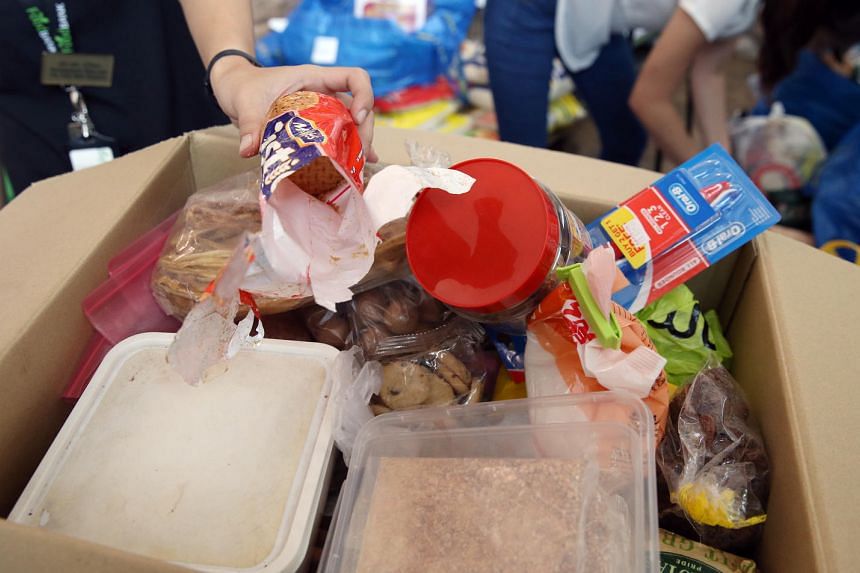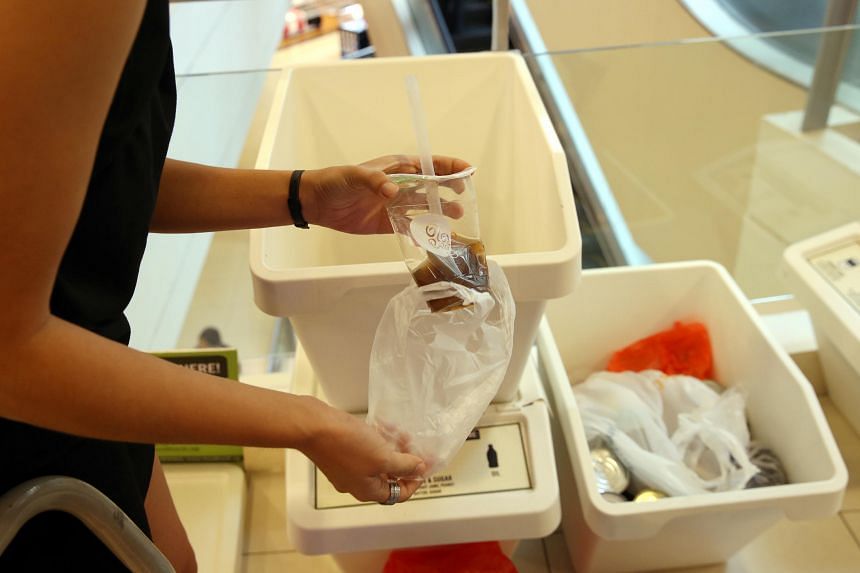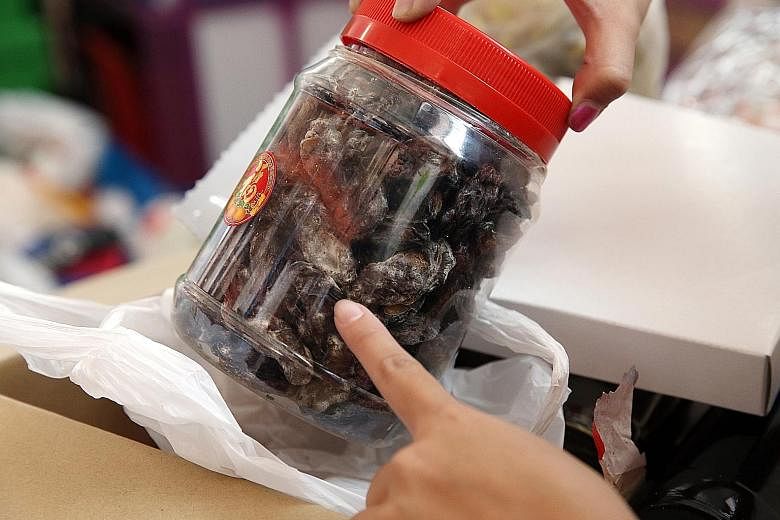Mouldy cakes, soiled underwear and nuggets crawling with maggots - these are not items in trash bins, but in-kind donations to thrift shops or charities.
They might be extreme cases, but charities interviewed by The Sunday Times said that up to 40 per cent of the items donated by the public end up being discarded regularly because they turn out to be unsuitable for the charities' use.
Time and effort is needed to collect and sift through them.
At The Food Bank Singapore (FBSG) - which collects donations of non-perishable food items like canned food and rice and distributes them to social service organisations - volunteers and staff spend about 1,700 man-hours sorting through an average of 240 tonnes of food donated by the public every year.

About 10 to 20 per cent of the items are discarded because they do not fit the charity's requirements, said Ms Margarita Seah, an FBSG management associate.
Bizarre examples of donations collected last year include syrup that expired in 1998.
The charity also often finds used coffee cups and half-eaten food in donation boxes at some collection points - which may contaminate other donations.

"It's quite shocking to see that people are leaving such items behind, as our signs clearly state that we collect only non-perishable items," said Ms Seah.
The signs at collection points list examples of acceptable items, such as unopened snacks or canned food with at least four weeks of shelf life, as well as items not accepted, such as unlabelled food products.
Ms Seah said that FBSG is looking at redesigning the signs with graphics to make the guidelines more obvious.
It now conducts talks in schools and offices to spread awareness before it holds food drives, during which donated items are collected from the public.
The Singapore Red Cross also has had its share of oddities among the unsuitable items that have been given to it.
Mr Dennis Yeo, its head of fund-raising, said that last year alone, the charity received items like a beer keg, five samurai swords and even a knuckleduster.
"There was still beer inside the keg and we had to call the distributor to collect it as it was a pressurised container," said Mr Yeo, who added that the swords and knuckleduster had to be handed over to the police.
About 30 to 40 per cent of the public donations that it receives for resale at its two thrift shops are unsuitable for use.
The Red Cross has guidelines on its website listing the items that it accepts - mainly new or second-hand items in good working condition such as clothes, electronic devices like mobile phones or iPads, and toys and books.
Mr Yeo said that one suggestion for donors is to ask themselves what condition they would like a product to be in, if they were the recipients.
Some organisations have made a more concerted effort to combat the problem of unwanted donations over the past year.

Ronald McDonald House Charities (RMHC) Singapore provides free accommodation for parents with gravely ill children at the National University Hospital. Ms Shameem Abdul Rahman, its executive director, said that in the past, 40 per cent of in-kind donations for beneficiaries were unsuitable.
But a new rule that RMHC introduced in the middle of last year - requiring staff and volunteers to inform donors that they have to inspect items before accepting them - has helped to reduce that percentage to almost zero.
The organisation also encourages donors to call to find out what specific items are on its wish list.
"There are times when they would give us leftover food items that have been opened and non-food items that are already used. That makes us pretty sad as we're (seen as) a dumping ground, which is wrong," said Ms Shameem.

To cope, other charities have reduced the number of donations they receive in kind.
Project Goodwill Aid had collected used items in good condition for low-income families twice a year since 2013, but founder Siti Nurani Salim said that this year, the organisation will cut the frequency to once a year because too much effort is needed to sort through and dispose of unwanted items.
Still, the seven charities interviewed by The Sunday Times said that there still remains a need for donations in kind.
On average, the Red Cross collects $400,000 a year from its thrift shop sales and Mr Yeo said that they are looking at expanding the store.
"Getting cash donations from individuals and corporations may be challenging given the economic outlook, but our thrift shop is one way through which we can convert donations we receive into cash."
The Salvation Army's social enterprise unit, Red Shield Industries, operates five thrift shops and receives 54 million tonnes of donations in kind a year. It said its operations not only help to raise funds but also allow people to do their part for the environment by reusing items and reducing wastage.
About 35 per cent of funds raised by the unit come from thrift shop proceeds.
"Cash provides greater flexibility when it comes to meeting needs, but we welcome all types of contributions that will allow us to make a difference in the community," said Red Shield Industries' deputy general manager Richard Goh.


